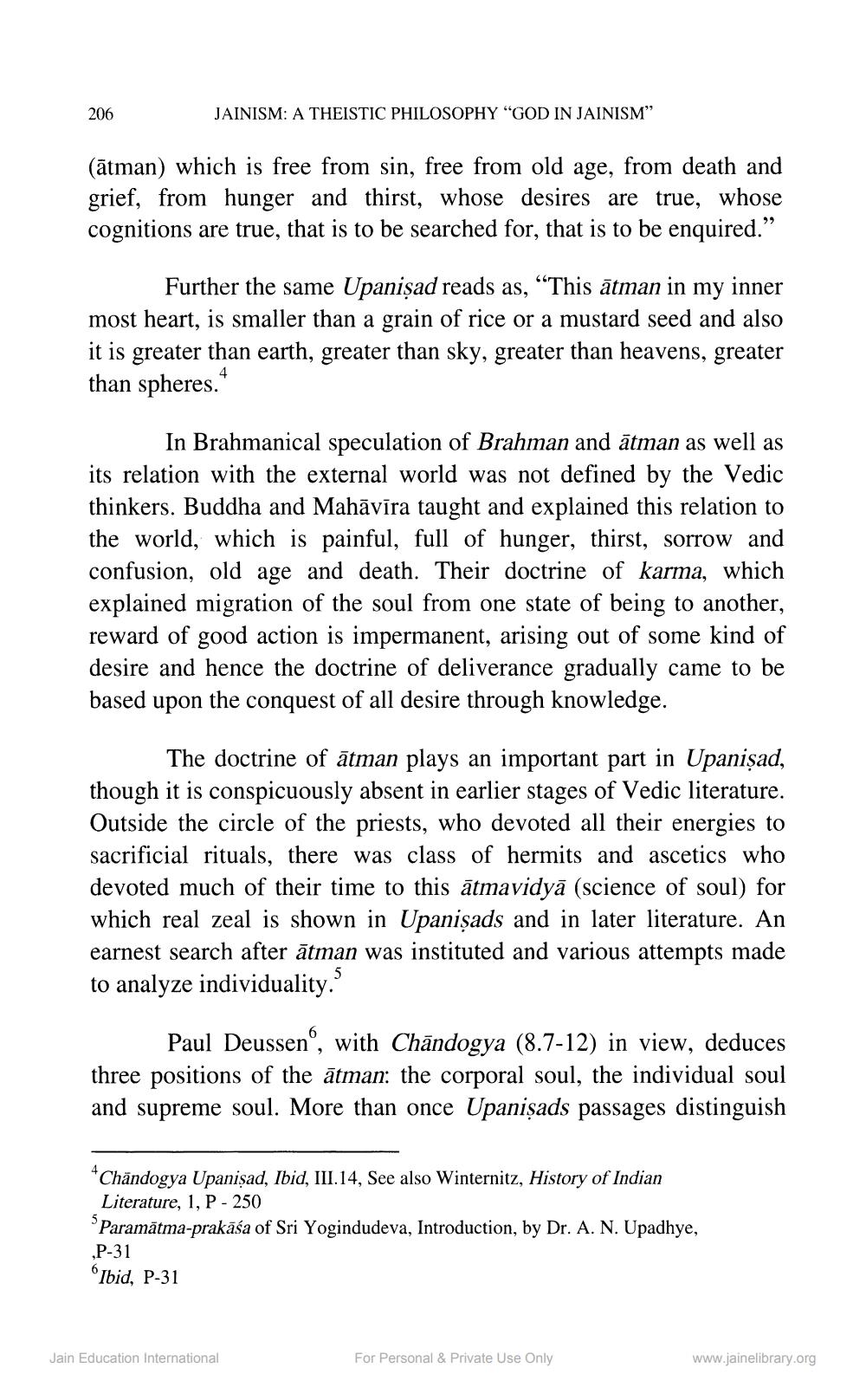________________
206
JAINISM: A THEISTIC PHILOSOPHY "GOD IN JAINISM"
(ātman) which is free from sin, free from old age, from death and grief, from hunger and thirst, whose desires are true, whose cognitions are true, that is to be searched for, that is to be enquired."
Further the same Upanişad reads as, “This ātman in my inner most heart, is smaller than a grain of rice or a mustard seed and also it is greater than earth, greater than sky, greater than heavens, greater than spheres.
In Brahmanical speculation of Brahman and ātman as well as its relation with the external world was not defined by the Vedic thinkers. Buddha and Mahāvīra taught and explained this relation to the world, which is painful, full of hunger, thirst, sorrow and confusion, old age and death. Their doctrine of karma, which explained migration of the soul from one state of being to another, reward of good action is impermanent, arising out of some kind of desire and hence the doctrine of deliverance gradually came to be based upon the conquest of all desire through knowledge.
The doctrine of ātman plays an important part in Upanişad, though it is conspicuously absent in earlier stages of Vedic literature. Outside the circle of the priests, who devoted all their energies to sacrificial rituals, there was class of hermits and ascetics who devoted much of their time to this ātmavidyā (science of soul) for which real zeal is shown in Upanişads and in later literature. An earnest search after ātman was instituted and various attempts made to analyze individuality."
Paul Deussen", with Chāndogya (8.7-12) in view, deduces three positions of the ātman: the corporal soul, the individual soul and supreme soul. More than once Upanişads passages distinguish
Chandogya Upanişad, Ibid, III.14, See also Winternitz, History of Indian Literature, 1, P-250 Paramātma-prakāśa of Sri Yogindudeva, Introduction, by Dr. A. N. Upadhye, ,P-31 Ibid, P-31
Jain Education International
For Personal & Private Use Only
www.jainelibrary.org




